June 14, 2025 | 01:20 GMT +7
June 14, 2025 | 01:20 GMT +7
Hotline: 0913.378.918
June 14, 2025 | 01:20 GMT +7
Hotline: 0913.378.918
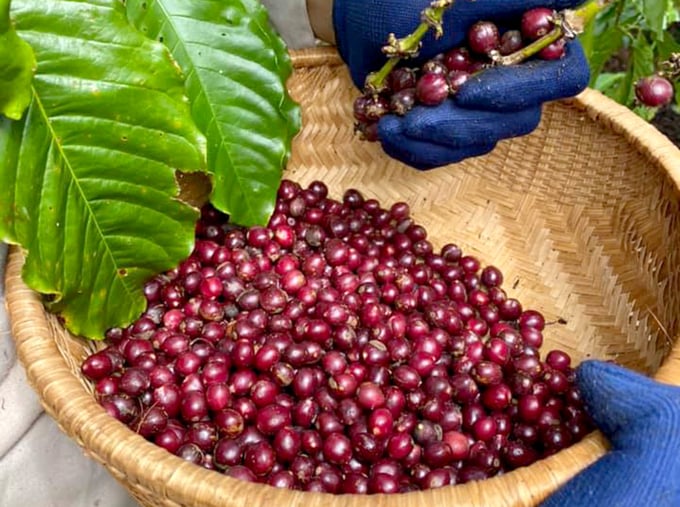
The price of Vietnamese coffee has increased to more than VND 100,000 per kg. Photo: Thanh Son.
According to Mr. Do Ha Nam, Vice Chairman of the Vietnam Coffee Cocoa Association (Vicofa), in March 2023, the Vietnamese coffee price was at VND 47,000 per kg. By October 2023, coffee prices were at VND 58,000 per kg. This was a dream price for coffee growers then because farmers had a good profit just by selling for VND 50,000 VND per kg.
Not stopping there, from the beginning of 2024 until now, Vietnamese coffee prices have continuously increased and are currently at VND 105,000 per kg, more than 2 times higher than a year ago.
Rising coffee prices have brought good profits to Vietnamese coffee growers, who have only been able to sell for less than VND 50,000 per kg for a long time. Therefore, Mr. Le Duc Huy, General Director of Simexco Dak Lak, said that the increase in coffee prices is a blessing for Vietnamese farmers.
But for businesses in the Vietnamese coffee supply chain, from purchasing agents to suppliers, exporters, traders, and roasters..., rapidly increasing and too high prices are causing many challenges.
Mr. Do Ha Nam said that coffee purchasing prices have increased too high compared to the previous crop year, requiring businesses to mobilize large capital resources. However, banks' credit limits for businesses did not increase.
The rapid price increase is associated with high risks for businesses purchasing goods for export through agents and traders. Some purchasing agents and businesses in localities with raw materials did not deliver goods on time as stipulated in sales contracts for export processing enterprises and FDI enterprises, even though the parties had discussed sharing risks, causing great damage to buyers and discrediting the Vietnamese coffee industry.
Failure to maintain credibility in business and export has not happened in the Vietnamese coffee industry for a long time. A representative of Neumann Vietnam said that the company has been involved in the Vietnamese coffee industry for the past 30 years. Neumann has always found that business and trade activities in the Vietnamese coffee industry are quite stable.
However, in the 2023 - 2024 crop year, that changed when serious problems occurred with respect to the signed contract. That is a delay in contract performance or even non-performance of the contract. This affects not only Neumann's Vietnamese coffee export activities but also the roasters who are customers of this company. Failure to respect contracts and signed agreements is widespread and risks disrupting the coffee supply chain.
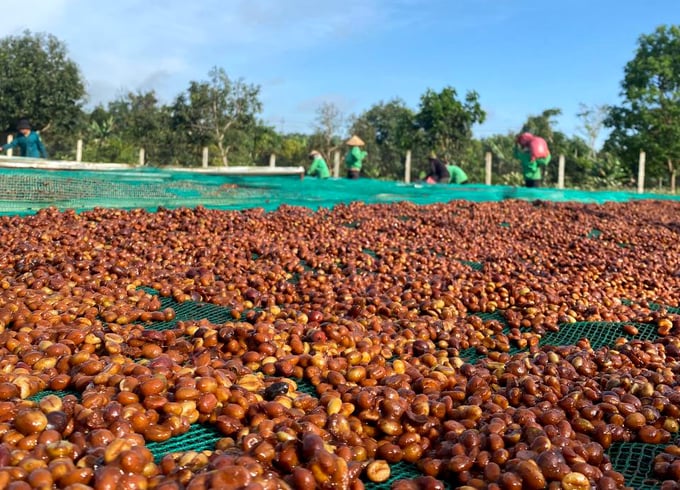
Farmers in the Central Highlands dry coffee. Photo: Thanh Son.
What is more worrying is that many suppliers, while not complying with the contracts signed with this customer, sell coffee to other customers to enjoy higher prices. This behavior is damaging the reputation of Vietnamese coffee. Information from Mr. Do Ha Nam said that a business deliberately did not fulfill coffee delivery contracts to many export companies, with a total volume of coffee reaching hundreds of thousands of tons.
Faced with that situation, Vicofa believes that it is necessary to find solutions to ensure the sustainability of the Vietnamese coffee supply chain, enforce signed contracts, and stabilize Vietnamese coffee prices at a level that harmonizes the benefits of farmers, agents, suppliers, exporters, importers and consumers around the world.
According to Mr. Do Ha Nam, when major problems related to coffee supply occur, parties in the supply chain need to provide information and support each other. When a risk occurs, work together to solve the problem best.
Last year, when Vietnam had almost no coffee left, while there were still many export contracts to be fulfilled, Vicofa recommended some solutions to its members.
One is to ask foreign companies to buy coffee from other sources, while Vietnamese companies will compensate for that purchase. The second is to import coffee from Indonesia for delivery proactively. Third, with contracts that can be postponed, negotiate to postpone the delivery time to the beginning of the new season. Those solutions are agreed and supported by many foreign companies. Thanks to that, up to this point, most Vietnamese coffee exporters are still ensuring the implementation of contracts in the 2023 - 2024 crop year.
Besides, the cooperation of banks is essential. Some banks have created capital conditions for coffee businesses to have enough money to buy coffee to fulfill signed orders with large volumes in the context of rising coffee prices. The evidence is that in the first 6 months of the 2023 - 2024 coffee season (from October 2023 to March 2024), Vietnam exported a total of more than 956 thousand tons of coffee, with a turnover of more than USD 3 billion. In particular, the main export of robusta coffee was over 825 thousand tons, with a turnover of over USD 2.3 billion.
However, banks have trusted only a few large enterprises to overcome capital difficulties. Therefore, Mr. Nguyen Nam Hai, Chairman of Vicofa, proposed that in the face of high coffee prices compared to the previous crop year, banks must consider increasing loan limits and prioritize interest rates for business enterprises, import and export of coffee to ensure the implementation of signed supply and export contracts.
Translated by Huong Giang

(VAN) Noting risks, report examines impacts of avian influenza, changing trade patterns since 2022, fish fraud, and shipping industry’s net-zero goals.

(VAN) Mr. Tran Quang Bao, General Director of the Forestry and Forest Protection Department, met and worked with the International Wood Products Association to promote cooperation in the field of timber trade.

(VAN) China's outbound shipments of rare earths in May jumped 23% on the month to their highest in a year, though Beijing's export curbs on some of the critical minerals halted some overseas sales.

(VAN) To sustain capital flow, administrative reform alone is not enough; what farmers truly need is an ecosystem where both government and businesses grow together in support.
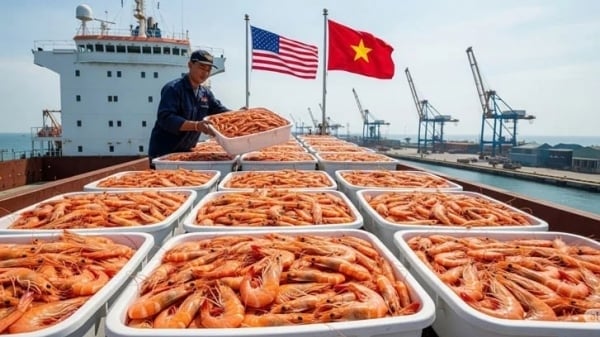
(VAN) Vietnam and the United States are proactively working together, each in their own way, to ensure that every container of agricultural goods carries not just products, but also long-term trust and value.
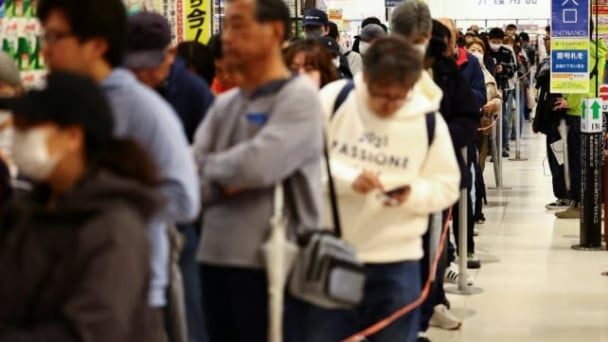
(VAN) Stores have started selling rice from the government’s stockpile to feed demand for the staple.
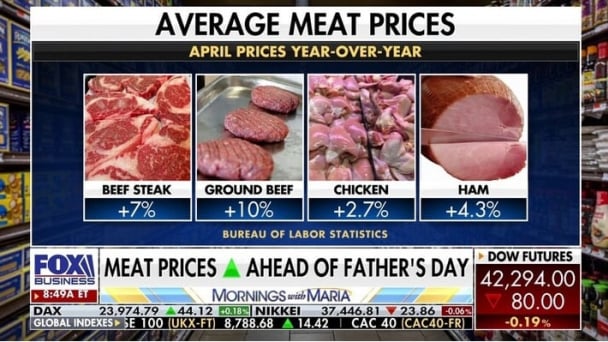
(VAN) Omaha Steaks CEO says rebuilding cattle herds will take about a year to ease price pressures.